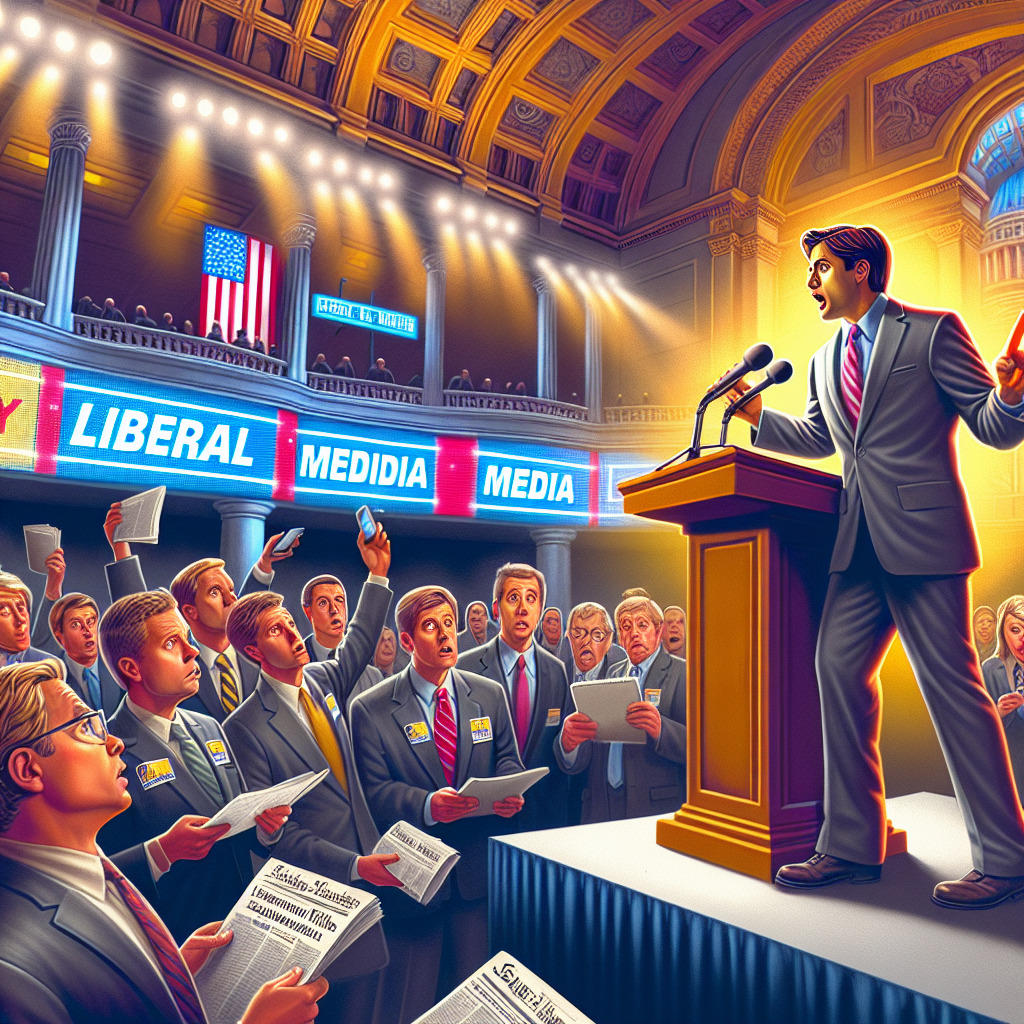Key Takeaways
Introduction
In a controversial move, a state legislator recently demanded the arrest of journalists, citing what they perceive as a widespread liberal bias in the media. This pronouncement has not only ignited a fierce debate about journalistic freedom, but also underscored the existing political polarization in the United States. As discussions heat up on social media platforms, the incident serves as a critical reminder of the evolving landscape of media and politics.
The Speech That Sparked the Outrage
During a recent political rally, the state legislator took the stage with a fiery speech targeting media outlets for their alleged left-leaning bias. While it is common for political figures to question media coverage, calling for the arrest of journalists marks uncharted territory. The lawmaker accused certain news organizations of deliberate misinformation, arguing that they contribute to societal discord.
Media and Bias: A Long-Standing Debate
The accusation of media bias is nothing new. However, the legislator’s comments have reignited the debate over the role of media in shaping political narratives. With cable news channels and online platforms often being labeled as conservative or liberal, the issue is as pertinent as ever. The central question remains: does media bias genuinely influence public opinion, or does it simply reflect political divisions?
Reactions from the Journalistic Community
Unsurprisingly, the call for journalist arrests was met with widespread condemnation from the press. Journalists and media organizations quickly responded, highlighting the importance of press freedom as a cornerstone of democracy. Many argued that such rhetoric is not only inflammatory but also detrimental to the principles of free speech and a free press.
The Role of Social Media in Public Debate
In today’s digital age, social media platforms like Twitter and Facebook serve as arenas for public discourse. This incident was no exception. Social platforms became hotspots for discussions, with hashtags related to the topic trending nationwide. Social media has become a powerful tool for amplifying voices, both in support of and against the legislator’s viewpoint. The immediacy and reach of these platforms bring both opportunities and challenges for meaningful dialogue.
First Amendment Rights: A Legal Perspective
At the heart of this controversy lies a fundamental American value: the First Amendment. The amendment protects freedom of speech and press, values that journalists heavily rely on. Legal experts were quick to point out that calling for the arrest of journalists could pose significant conflicts with these constitutional rights. The legal precedent strongly favors protection against government interference in journalistic activities, making the legislator’s demands particularly contentious.
The Broader Implications for American Politics
This incident is emblematic of broader tensions in American politics, where distrust in media and institutions is on the rise. According to recent surveys, public confidence in media outlets is dwindling across the political spectrum. The legislator’s remarks tap into widespread skepticism and distrust, resonating with individuals who feel alienated by mainstream narratives.
Navigating Polarization: A Path Forward
As the dust settles, it is crucial for both politicians and media to seek common ground. Constructive dialogues and transparent reporting can bridge the growing divide. Educating the public about media literacy is essential in helping individuals discern facts from opinions. Additionally, politicians can engage in responsible rhetoric that prioritizes national unity over divisive narratives.
The Responsibility of Media Outlets
Media organizations too have a role to play. Striving for balanced coverage and accountability is vital to restoring public trust. By transparently addressing biases and ensuring diverse viewpoints, journalists can reaffirm their commitment to serving the public interest. Transparency and accountability are key in this evolving media landscape.
Conclusion
The state legislator’s demand for the arrest of journalists has ignited a crucial debate about media bias, legal rights, and political discourse in America. As discussions unfold, it is imperative to uphold the principles of free speech and press, ensuring that democracy’s fundamental pillars remain intact. While this incident highlights underlying tensions, it also provides an opportunity to reflect on the role of media and politicians in fostering a more informed and united society.

